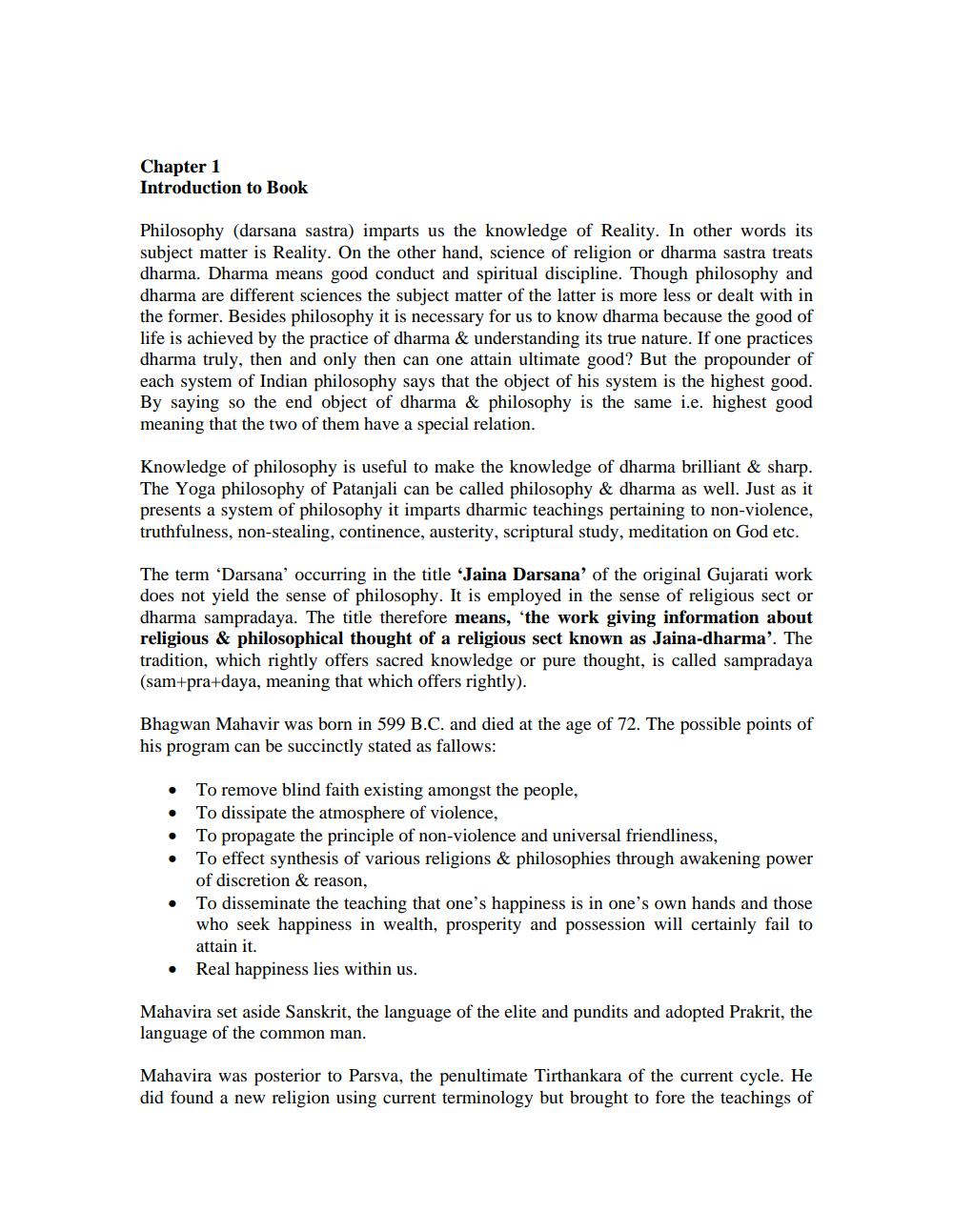Book Title: Essentials of Jaina Philosophy Author(s): Nyayavijay, Nagin J Shah Publisher: Nyayavijay Nagin J Shah View full book textPage 2
________________ Chapter 1 Introduction to Book Philosophy (darsana sastra) imparts us the knowledge of Reality. In other words its subject matter is Reality. On the other hand, science of religion or dharma sastra treats dharma. Dharma means good conduct and spiritual discipline. Though philosophy and dharma are different sciences the subject matter of the latter is more less or dealt with in the former. Besides philosophy it is necessary for us to know dharma because the good of life is achieved by the practice of dharma & understanding its true nature. If one practices dharma truly, then and only then can one attain ultimate good? But the propounder of each system of Indian philosophy says that the object of his system is the highest good. By saying so the end object of dharma & philosophy is the same i.e. highest good meaning that the two of them have a special relation. Knowledge of philosophy is useful to make the knowledge of dharma brilliant & sharp. The Yoga philosophy of Patanjali can be called philosophy & dharma as well. Just as it presents a system of philosophy it imparts dharmic teachings pertaining to non-violence, truthfulness, non-stealing, continence, austerity, scriptural study, meditation on God etc. The term 'Darsana' occurring in the title 'Jaina Darsana' of the original Gujarati work does not yield the sense of philosophy. It is employed in the sense of religious sect or dharma sampradaya. The title therefore means, the work giving information about religious & philosophical thought of a religious sect known as Jaina-dharma'. The tradition, which rightly offers sacred knowledge or pure thought, is called sampradaya (sam+pra+daya, meaning that which offers rightly). Bhagwan Mahavir was born in 599 B.C. and died at the age of 72. The possible points of his program can be succinctly stated as fallows: To remove blind faith existing amongst the people, To dissipate the atmosphere of violence, To propagate the principle of non-violence and universal friendliness, To effect synthesis of various religions & philosophies through awakening power of discretion & reason, To disseminate the teaching that one's happiness is in one's own hands and those who seek happiness in wealth, prosperity and possession will certainly fail to attain it. Real happiness lies within us. • Mahavira set aside Sanskrit, the language of the elite and pundits and adopted Prakrit, the language of the common man. Mahavira was posterior to Parsva, the penultimate Tirthankara of the current cycle. He did found a new religion using current terminology but brought to fore the teachings ofPage Navigation
1 2 3 4 5 6 7 8 9 10 11 12 13 14 15 16 17 18 19 20 21
